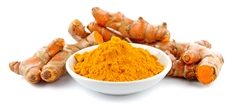Carbon-14 Analysis – A Tool for Counterfeit Detection
 Natural products have become increasingly popular, and as this trend continues the requirement for a reliable counterfeit detection tool is increasingly prevalent. Naturally sourced products are more expensive than their synthetic equivalents, so the adulteration or fraudulent use of the cheaper artificial, usually fossil fuel-derived, version is a problem in the industry. As a result, being able to detect adulterated or fraudulent products has become increasingly important for stakeholders throughout the supply chain, from the manufacturers and distributors to the consumers themselves.
Natural products have become increasingly popular, and as this trend continues the requirement for a reliable counterfeit detection tool is increasingly prevalent. Naturally sourced products are more expensive than their synthetic equivalents, so the adulteration or fraudulent use of the cheaper artificial, usually fossil fuel-derived, version is a problem in the industry. As a result, being able to detect adulterated or fraudulent products has become increasingly important for stakeholders throughout the supply chain, from the manufacturers and distributors to the consumers themselves.
Biobased content testing (Carbon-14 analysis) is a tool for counterfeit detection. By determining the amount of carbon in the product that comes from renewable sources compared to fossil fuel sources, any biobased claims can be verified and synthetic adulteration can be detected. Biobased content testing uses Carbon-14 signatures, the most accurate way to determine natural vs synthetic sources of products.
Curcumin
In addition to being used as food flavoring and coloring, notably as a component of turmeric, curcumin is also seen in therapeutic applications. The natural source of curcumin is the turmeric plant. With the synthetic production route being cheaper, there have been instances where curcumin labelled as “natural” has been adulterated with synthetic components.
Biobased content testing offers a counterfeit detection method to determine whether a product is natural or synthetic or if the natural product has been adulterated with a synthetic counterpart.
Food Labeling
The U.S. Food & Drug Administration considers the term “natural” to mean that nothing artificial or synthetic (including all color additives regardless of source) has been included in, or has been added to, a food. The FDA stresses that its policy was not intended to address food production methods, such as the use of pesticides, nor did it explicitly address food processing or manufacturing methods, such as thermal technologies, pasteurization, or irradiation. The FDA also did not consider whether the term “natural” should describe any nutritional or other health benefit.
Beta Analytic’s Fast Natural Product Testing
ISO/IEC 17025:2017-accredited Beta Analytic provides Carbon-14 analyses to determine the percentage of natural versus synthetic content of food and dietary supplements. The lab provides results in 7 business days or less. A priority service is available for results required in 4 business days or less. Based in Miami, Florida, Beta Analytic reports results according to international standards ASTM D6866 or ISO 16620-2 8.3.2: biobased carbon content as a fraction of total carbon or total organic carbon. For inquiries, please email the lab.